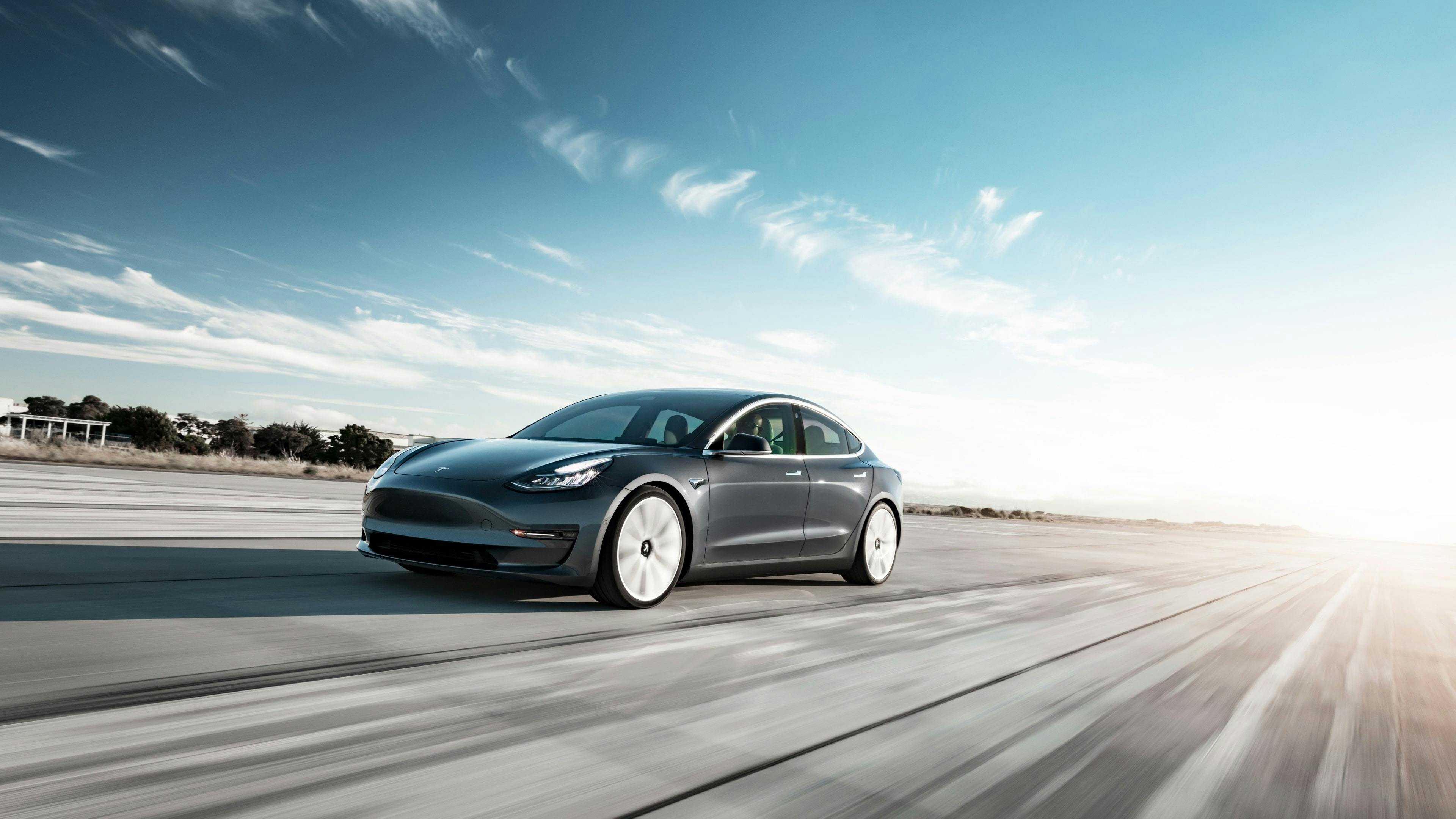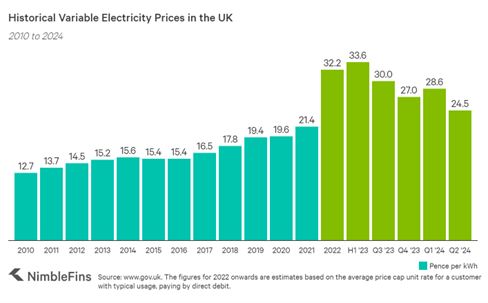
How Much Does an Electric Car Cost Per Mile? (UK, 2024)
Electric cars cost between 8p and 11.5p per mile to run - how much does yours cost?
On average, it costs between 3p and 40p per mile to charge some of the most popular EV models in the UK, and it costs between 8p and 11.5p per mile on average to charge and run an electric car.
The cost per mile will vary depending on the type of electric car you drive, as well as the type of electric charger you use.
How Much Does An Electric Car Cost Per Mile?
According to Which? as of November 2023, the cost per mile of an electric car, on average, are as follows:
-
Small city cars such as the VW E-Up or the Renault Zoe: 8p - 9p a mile
-
Medium to large cars such as the Nissan Leaf or the Tesla Model 3 - 8.3p - 10p per mile
-
Large SUVs like the Audi e-Tron: 8.8p -11.5p per mile
From January 2024, the standard unit price of electricity increased to 28.62p per kWh. This means EV drivers will see their charging costs increase by an average of £30 annually, or by 0.4p per mile.
You can save money by signing up to an EV specific tariff which charges you less during off peak hours. You can read about EV tariffs here.
Which Electric Cars Are Cheapest To Run?
Which? have also compiled the following list of electric cars that are the cheapest to run.
Hyundai Ioniq 6 Electric
Most efficient overall. Large car class.
-
Cost of charging at home off peak (10p per kWh): 2.5p per mile
-
Cost of charging at home peak (28.62p per kWh): 7.1p per mile
-
Cost of charging publicly AC (at 50p per kWh): 12.4p per mile
-
Cost of charging publicly DC (at 65p per kWh): 16.2p per mile
-
Cost of charging publicly DC (at 80p per kWh): 19.3p per mile
Renault Megane E-Tech Electric
Most effiecient medium size hatchback/saloon.
-
Cost of charging at home off peak (10p per kWh): 3.1p per mile
-
Cost of charging at home peak (28.62p per kWh): 8.8p per mile
-
Cost of charging publicly AC (at 50p per kWh): 15.4p per mile
-
Cost of charging publicly DC (at 65p per kWh): 20.1p per mile
-
Cost of charging publicly DC (at 80p per kWh): 24.7p per mile
Fiat 500e
Most efficient city/small hatchback.
-
Cost of charging at home off peak (10p per kWh): 2.8p per mile
-
Cost of charging at home peak (28.62p per kWh): 8p per mile
-
Cost of charging publicly AC (at 50p per kWh): 14p per mile
-
Cost of charging publicly DC (at 65p per kWh): 18.2p per mile
-
Cost of charging publicly DC (at 80p per kWh): 22.3p per mile
Skoda Enyaq Coupe iV vRS
Most efficient mid/large SUV.
-
Cost of charging at home off peak (10p per kWh): 3.1p per mile
-
Cost of charging at home peak (28.62p per kWh): 9p per mile
-
Cost of charging publicly AC (at 50p per kWh): 15.7p per mile
-
Cost of charging publicly DC (at 65p per kWh): 20.4p per mile
-
Cost of charging publicly DC (at 80p per kWh): 25.1p per mile
Which Electric Car Is The Most Expensive To Run?
Mercedes EQV
The least efficient car in the Which? efficiency tests.
-
Cost of charging at home off peak (10p per kWh): 5p per mile
-
Cost of charging at home peak (28.62p per kWh): 14.2p per mile
-
Cost of charging publicly AC (at 50p per kWh): 24.9p per mile
-
Cost of charging publicly DC (at 65p per kWh): 32.4p per mile
-
Cost of charging publicly DC (at 80p per kWh): 39.8p per mile
How Has The Cost Per kWh Changed Throughout The Years?
Over time, the cost per unit of electricity has increased. It reached its peak in the second quarter of 2023, where it reached 33.6pence per kWh.

The cost per kWh has doubled since 2010, rising from 12.7pence per kWh, to 24.5pence per kWh in quarter two of 2024.
Data courtesy of NimbleFins, in partnership with gov.uk.
Please find the original article here.
Read More
How Much Does it Cost to Charge an Electric Car? (UK)
Charging an electric car is cheaper than refuelling a petrol or diesel car. Read this article to find out exactly how much it costs and why it is cheaper than refuelling an ICE.
How Much Does it Cost to Install an Electric Car Charger?
Charging an electric car at home is more convenient and can cost less than using public charging points. However, you must have the right infrastructure installed before you can do so. Find out more in this article, which details how to install a home charging point, as well as how much it costs to do so.
How Much Does It Cost to Run an Electric Car? (Vs an ICE)
Maintaining an electric car battery is only one part of EV ownership. If you’re looking to buy an electric car, you need to know how much you will spend on insurance, servicing, road tax and charging. Find out more in this article.
How Can I Drive an Electric Car Through a Salary Sacrifice Scheme?
A salary sacrifice scheme is where an employee of a business gives up an amount from their gross salary in return for a non-cash item. In this article, we explore how you can access an electric car through a salary sacrifice scheme, and the benefits that come with them.